Signature Programs
The Northeastern IPM Center has established Signature Programs to better address today’s challenges in relation to integrated pest management (IPM). The Signature Programs are a dynamic response to ongoing issues and new ones that rise to the forefront.
We are committed to improving quality of life: healthy people, effective food systems, functioning ecosystems, and vibrant communities through integrated pest management. We encourage all individuals, institutions, and organizations from historically underserved communities to contribute to development and adoption of IPM practices.
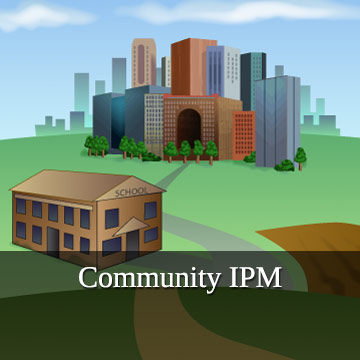
Community IPM
We foster the adoption of IPM in structures and surrounding landscapes including housing, schools, food service facilities, and commercial and public properties.
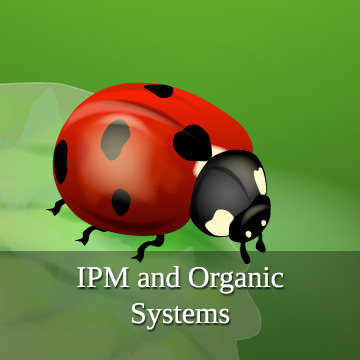
IPM and Organic Systems
IPM and organic systems share many of the same goals and challenges, and we support collaboration between these two communities to build a more robust agricultural system.
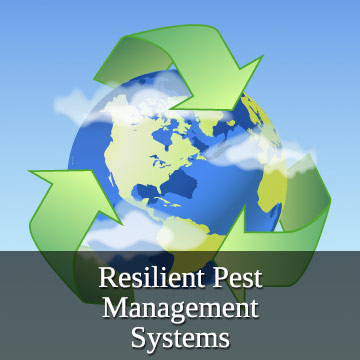
Resilient Pest Management Systems
Not only do pest distributions and occurrences vary with increases in extreme weather events and gradual rises in average annual temperatures, but also ag technologies and markets can rapidly alter production systems. Therefore, responsive research and development of IPM tools and practices tailored to address emerging needs must be supported. We provide funding for advancing knowledge and IPM solutions specific to these challenges.
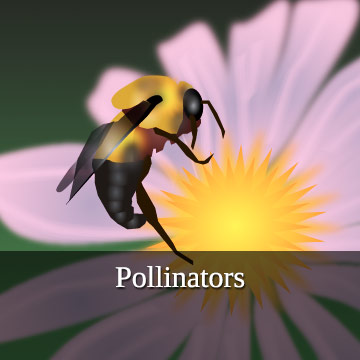
Pollinators
Decline of wild and managed pollinators is one of the most critical issues facing our food systems. Habitat destruction, increasing extreme weather events, gradually rising average annual temperatures, and pesticide use are some of the contributing factors. We will continue to give this issue priority and encourage efforts to develop IPM practices protective of and with lower risk to wild and managed pollinators.

Next Generation Education
It is critical to maintaining the IPM knowledge base that there are scientists, educators, and practitioners who understand IPM basics. Our Center facilitates projects that provide real-world experience in early career IPM personnel and allows for partnerships to be built with growers, educators, researchers, and industries. We recognize early career IPM personnel in IPM in our annual Outstanding Achievements in IPM award. Our Center also archives important pest management resources that help early career IPM personnel be more effective in their careers. We will continue to support early career people striving to be successful in the field of IPM, both as practitioners and in academia.
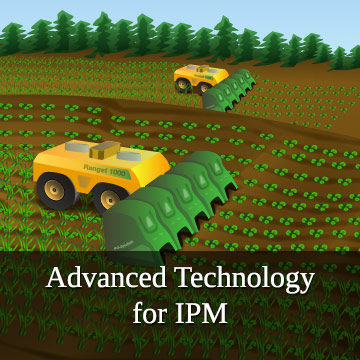
Advanced Technology for IPM
This signature program continues from an earlier one called “Advanced Production Systems” but is more specific to technologies that can assist in the implementation of IPM. One issue identified by NEERA-2104 is that of farm labor shortages in the Northeast. One way of assisting with this problem while improving adoption of IPM is through technologies including weather tools such as NEWA (Network for Environment and Weather Applications), remote sensing technologies with demonstrations of efficacy in Northeast settings and scales, agricultural applications of AI, and learning models. We will encourage demonstration and adaptation of technologies for use in Northeast agricultural systems.
Cross-Cutting Issues
These issues cut across all aspects of IPM and food security and are integral to each signature program. We describe cross-cutting issues separately here to provide the emphasis and visibility necessary to make progress.
- Emerging Invasive Species (IS) – Many pests of concern are IS that have become established, but emerging or newly identified IS are of great concern because major damage may occur before management can be developed or there may be a window for developing management practices before there is major damage. We support new collaborations, research, and education to address these pests.
- Pesticide Resistance – Resistance to pesticides is increasing and is impacting the range of options available to pest managers in all situations, including housing and school buildings. Efforts to identify alternative pesticides and alternative or new IPM practices, such as biological pesticides or cultural methods, are critical to long-term effective pest management. Steps in an IPM practice, such as monitoring for presence and using degree-day models to predict emergence, can help tune the use of pesticides to the need in a specific setting.
- Economics – Two surveys conducted by the Center and priority-setting discussions by NEERA-2104 all indicate that economics, specifically the cost/benefit ratio and the need for good cost analyses, is central to IPM adoption.
